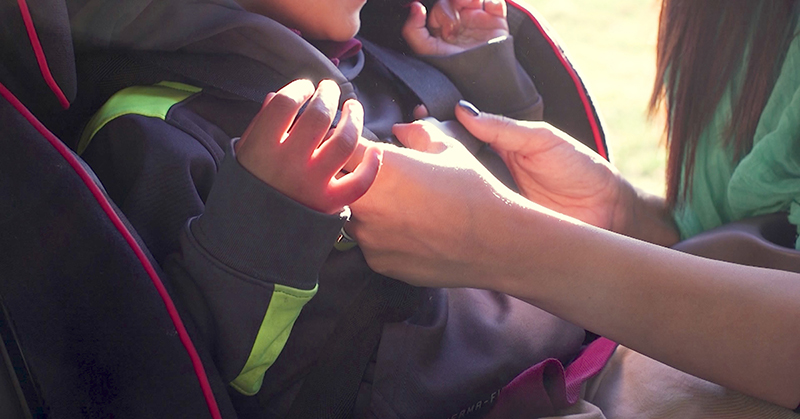How Hot is Your Car?
TTUHSC Expert Warns About Dangers of High Temperatures and Kids in Cars

With the expected soaring high temperatures, the dangers of children suffering heat- related health injuries including death, also increase. According to the National Highway Traffic Safety Administration, 53% of hot car deaths happen because someone forgets to remove a child from a car.
Texas Tech University Health Sciences Center Chief Health Officer and Department of Family and Community Medicine Chair Ron Cook, D.O., said children left in cars can die of heatstroke in minutes.
“Children can suffer from heatstroke signs that would require immediate medical attention. They would first go into shock, have seizures, suffer from weakness, dizziness, nausea and headaches and eventually can lead to death very quickly.”
According to the American Academy of Pediatrics (AAP), on a 70-degree day, a parked car’s interior can climb to deadly temperatures in less than 30 minutes. Cook said the health consequences on a day when temperatures exceed 100 degrees can escalate even faster and a young child can suffer from heatstroke or die. On a 100-degree day, the interior of a car can reach over 130 degrees.
Here are some safety reminders from the AAP:
- Always check the back seat and make sure all children are out of the car before locking it and walking away.
- Avoid distractions while driving, especially cell phone use.
- Be extra alert when there is a change in your routine, like when someone else is driving your child or you take a different route to work or child care.
- Have your child care provider call if your child is more than 10 minutes late.
- Put your cell phone or purse in the back seat, so you check the back seat when you arrive at your destination.
- If someone else is driving your child, always check to make sure he has arrived safely.
- Keep your car locked when it is parked to prevent a curious child from entering when no one is around. Many hot car deaths have occurred when a child mistakenly locks himself inside.
- Make sure children do not have easy access to your car keys.
- Teach children that cars are not safe places to play.
- Keep rear fold-down seats closed to prevent a child from crawling into the trunk from inside the car. Remind children that cars, especially car trunks, should not be used for games like hide-and-seek.
Cook also said not to forget that high temperatures can quickly affect the health of our senior citizens and pets. And one last reminder, if you see a child trapped in a car, call 9- 1-1 and stay with the child until help arrives.
The National Highway Traffic Safety Administration provides this link to show how
quickly temperatures rise in a car: https://www.nhtsa.gov/child-safety/you-can-help- prevent-hot-car-deaths
Related Stories
Celebrating Veterans: TTUHSC’s General Martin Clay’s Legacy of Service and Leadership
From his initial enlistment in the Army National Guard 36 years ago to his leadership in military and civilian health care management roles, Major General Martin Clay’s career has been shaped by adaptability, mission focus and service to others.
Texas Tech University Health Sciences Center School of Nursing Named Best Accelerated Bachelor of Science in Nursing Program in Texas
The TTUHSC School of Nursing Accelerated Bachelor of Science in Nursing (BSN) program has been ranked the No. 1 accelerated nursing program in Texas by RegisteredNursing.org.
TTUHSC Names New Regional Dean for the School of Nursing
Louise Rice, DNP, RN, has been named regional dean of the TTUHSC School of Nursing on the Amarillo campus.
Recent Stories
The John Wayne Cancer Foundation Surgical Oncology Fellowship Program at Texas Tech University Health Sciences Center Announced
TTUHSC is collaborating with the John Wayne Cancer Foundation and has established the Big Cure Endowment, which supports the university’s efforts to reduce cancer incidence and increase survivability of people in rural and underserved areas.
TTUHSC Receives $1 Million Gift from Amarillo National Bank to Expand and Enhance Pediatric Care in the Panhandle
TTUHSC School of Medicine leaders accepted a $1 million philanthropic gift from Amarillo National Bank on Tuesday (Feb. 10), marking a transformational investment in pediatric care for the Texas Panhandle.
Texas Tech University Health Sciences Center Permian Basin Announces Pediatric Residency Program Gift
TTUHSC Permian Basin, along with the Permian Strategic Partnership and the Scharbauer Foundation, Feb. 5 announced a gift that will fund a new pediatric residency.
